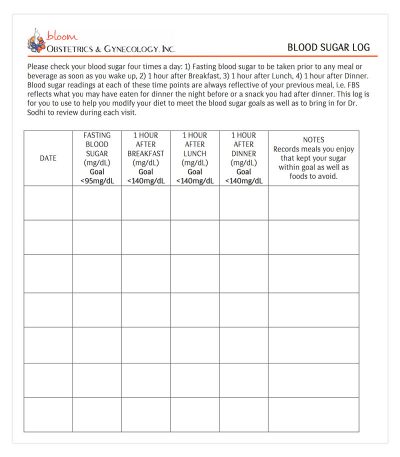Gestational diabetes mellitus (GDM) is a form of diabetes that occurs in pregnancy that can cause serious pregnancy complications if not controlled appropriately. Dr. Neetu K. Sodhi specializes in the management of GDM and serves the women of Tarzana, the San Fernando Valley as well as the greater Los Angeles area.
Gestational Diabetes
Gestational diabetes mellitus (GDM) is a form of diabetes that occurs in pregnancy.
Like diabetes, GDM results in poorly regulated blood sugar levels, therefore, it becomes crucial to monitor sugar intake and modify dietary carbohydrate intake. Most women with controlled blood sugar deliver healthy babies without complications.
Onset of GDM is usually around 24 weeks; at this time, vital organs have been formed and the baby is growing. Because structures are already formed at this time, GDM does not pose the same risk for birth defects as pre-pregnancy diabetes. If not controlled or treated, however, GDM can lead to macrosomia because glucose crosses the placenta and excess glucose leads to an over-sized baby. Babies with macrosomia may have breathing problems and are at higher risk for type II diabetes.
The American College of Obstetricians and Gynecologists recommends performing a one-hour blood glucose challenge test to screen for gestational diabetes in pregnant women between 24 and 28 weeks of pregnancy. You will fast 8 hours prior to coming to the office and your fasting blood glucose level will be checked. You will drink a 8 ounce glucose solution and your glucose blood level will be checked again in an hour. A normal blood glucose level, after 1 hour, is lower than 140 mg/dL. A glucose level above this value is considered an impaired glucose tolerance, and a three-hour glucose challenge test will be recommended.
Nutrition for GDM
Below are some examples of carbohydrates in food:
- Fruit & fruit juice*
- Grains, cereal, pasta
- Any baked goods- bread, pastries, cookies, etc.
- Starchy vegetables- potatoes, corn, squash, carrots, peas, yams
- Dairy such as milk and yogurt
- Processed carbs such as crackers, tortilla chips, and pretzels
- Honey
* Fruits are an important part of any nutritious diet. It is recommended that pregnant women have one to three servings of fruit daily.
A single serving of fruit is:
- One small piece of fruit (i.e. a small orange, a small apple), or
- Half of a larger piece of fruit (i.e. half of a banana, half of a grapefruit, etc), or
- A half-cup of mixed fruit (mixed berries, grapes, chopped bananas, etc)
Glycemic Index
Glycemic Index is a measure of how quickly a person’s blood sugar rises (relative to the standard- pure glucose) two hours within consumption of a carbohydrate-rich food.
A list of some common foods and their GI can be found here: Glycemic Index for 60+ Foods
Track your Blood Sugar
If you are diagnosed with gestational diabetes Dr Sodhi will prescribe a glucometer and ask that you check your blood sugar four times a day: fasting (prior to eating or drinking in the morning), and 1 hour after each of three meals (breakfast, lunch and dinner). The fasting value should be 95 mg/dL or less and the 1 hour after meals value should be less than 140 mg/dL to indicate good sugar control.
You can log your sugars on the printable form below and make sure to bring the log to all of your appointments.


